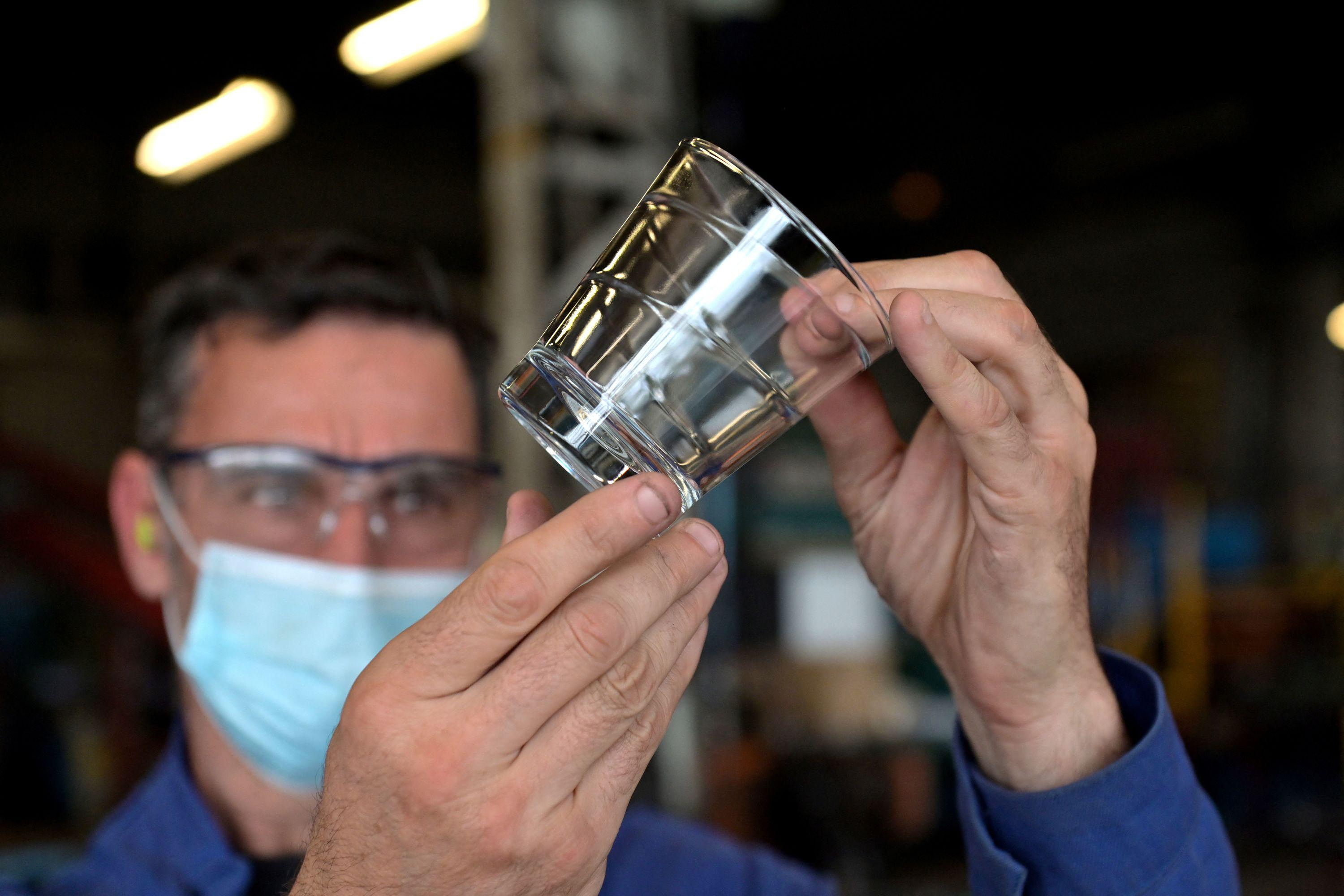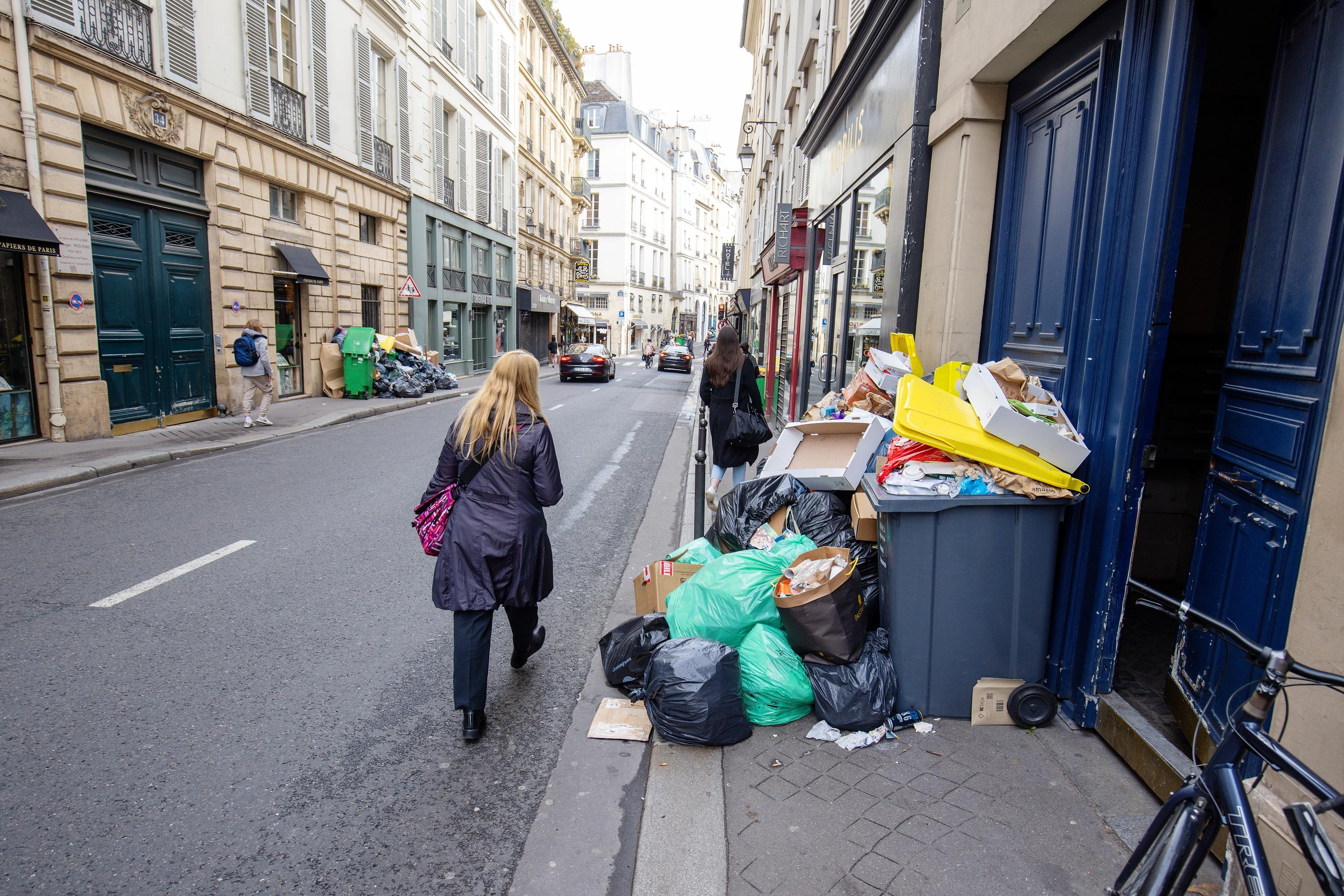Dogs and cats that are chained up or left in boxes in front of the door at night, the employees of the Hamburg animal shelter are familiar with this sight. But four pythons in a cage with a dangling warning about the dangerous snakes has never been seen before. The owner did not want to continue to care for his exotics and looked for this easy way for him.
"He probably didn't want to or couldn't bear the energy costs anymore, because they are very high for the terrariums," said the animal shelter. More taxes of this kind are expected, although the capacities are already exhausted. It is the start of a phase that the otherwise so rich and self-confident Hanseatic city has never experienced before after the Second World War.
In any case, the development on the energy markets can already be seen in many places in the city, and the pressure on the state government to campaign for a change in strategy at federal level is growing by the day. On Monday, the Hamburg Chamber of Commerce, in a resolution that emerged from a special session, called not only for the continued operation of the three nuclear power plants still in operation, but also for the restart of three nuclear power plants that had already been shut down. "The coal reserve power plants must be brought back onto the market and the nuclear power plants that are still connected to the grid must continue to be operated until the end of the crisis."
Chamber of Commerce President Norbert Aust is certain: "The energy crisis is a massive threat to the economy and the future of the location." For a secure energy supply at competitive prices, "energy sources that we actually wanted to say goodbye to, such as coal and nuclear power, must continue to be used until the end of the crisis." At the same time, the federal government must reduce the tax burden on the energy price.
The President of the Wholesale and Foreign Trade Association (AGA), Hans Fabian Kruse, also sees a need for quick action. What drives him above all is what happens in times of little wind and sun. WELT AM SONNTAG he said: “The main problem of the ever worsening energy crisis is the supply side. What happens in the dark doldrums? Average values of photovoltaics and wind power are then irrelevant. The government must immediately activate all available energy sources with special permits.”
Things are getting increasingly tight for small and medium-sized companies. "Explosive prices for electricity, gas and fuel, inflation at a record level, persistently disrupted supply chains and supply bottlenecks for raw materials and intermediate products: Parts of wholesale and foreign trade are heading for a very difficult situation. Energy prices have to come down,” says Kruse. Reason therefore calls for the continued operation of all usable base load coal and nuclear power plants for up to two winters. All possibilities that ensure supply and price stability on the energy market must be exhausted.
Most recently, Hamburg's Finance Senator Andreas Dressel (SPD) spoke out in favor of converting the nuclear power plants that are still running into stretched operation. The stretching operation is technically easier to handle, "than if we find out in fog and a calm wind that we need the nuclear power plants and then have to start them up again," he told the "Hamburger Abendblatt". In July, however, Mayor Peter Tschentscher (SPD) spoke out against longer use of nuclear energy. He sees no solution to the current problems in extending the operating times of the nuclear power plants still connected to the grid. He cited the unsolved disposal problem as the reason.
With his attitude, Dressel is still relatively alone in the Senate. Environment Senator Jens Kerstan (Greens) has repeatedly asked for understanding that now is not the time for purely political lessons from his party, for example, that he wants and must act pragmatically. This relates primarily to two areas: On the one hand, he still wants to build a mobile LNG terminal in the port, although the federal government has long since awarded other locations permanent unloading points for the liquid gas.
On the other hand, he follows the path of his party friend Winfried Kretschmann, like the Prime Minister of Baden-Württemberg, he likes to give practical advice on showering. He himself now always sets an alarm that reminds him to turn off the water promptly after four minutes of showering.
Mayor Peter Tschentscher (SPD) relies on wake-up calls of this kind when he presented the "Hamburg Turns That" campaign on Thursday, in which numerous Hamburg institutions and companies are taking part with the aim of collective energy savings. The campaign is designed for things "that we always knew," said the mayor. After all, it is known "that it naturally saves energy if you heat a little less, if you shower a little less."
"Hamburg is about it" is about "that we get the motivation to implement it". Although the Chamber of Commerce is on board, it also made it clear that what they actually want from Hamburg politicians is something completely different, namely their demands for power plant reserves: "'Hamburg is turning this' is an important addition to the catalog of measures," said Chamber President Aust therefore only flush.
For the Hamburg CDU, too, there is no question that the Hamburg state government will have to redefine its "catalog of measures". In a statement on Thursday, state chairman Christoph Ploß said: “Every megawatt hour will count in the coming winter. We support the demands of the Chamber of Commerce and other stakeholders in Hamburg's economy."
In order for Hamburg companies to survive in international competition, they would also need a reduction in taxes on electricity and gas. In his view, the current course of the SPD, Greens and FDP endangers thousands of jobs in Hamburg. Ploß was also a co-initiator of a CDU Bundestag motion to extend the life of the three nuclear power plants that are still producing electricity, which, as expected, was rejected late Thursday by the traffic light coalition deputies.
The CDU parliamentary group leader in the Hamburg Parliament, Dennis Thering, assisted his party friend: "The traffic light government in the federal government and the red-green Senate in Hamburg have massively exacerbated the energy crisis through numerous, mostly ideologically driven wrong decisions." The supply side in the electricity market must be strengthened with all your might: "Every megawatt hour counts, everything needs to be put to the test."
In any case, the CDU, which has shrunk in Hamburg, senses the potential in the energy issue to once again uncompromisingly stand by the side of the large commercial enterprises after a long time. And indeed, the topic harbors a high risk potential for the governing parties: If important companies in the metropolitan region of Hamburg – which is now Germany’s largest industrial area – have to bow to price pressure and have to close, the energy crisis is likely to suffocate the SPD and the Greens. Like a constrictor.

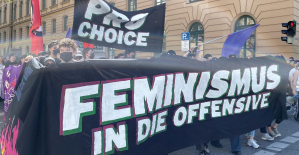 Germany: abortions should be authorized up to 12 weeks, concludes a commission launched by Olaf Scholz
Germany: abortions should be authorized up to 12 weeks, concludes a commission launched by Olaf Scholz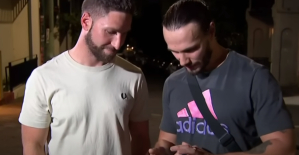 Knife attack in Australia: who are the two French heroes congratulated by Macron?
Knife attack in Australia: who are the two French heroes congratulated by Macron?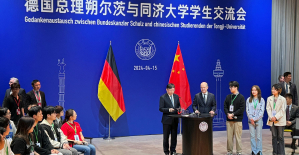 Faced with an anxious Chinese student, Olaf Scholz assures that not everyone smokes cannabis in Germany
Faced with an anxious Chinese student, Olaf Scholz assures that not everyone smokes cannabis in Germany In the Solomon Islands, legislative elections crucial for security in the Pacific
In the Solomon Islands, legislative elections crucial for security in the Pacific Covid-19: everything you need to know about the new vaccination campaign which is starting
Covid-19: everything you need to know about the new vaccination campaign which is starting The best laptops of the moment boast artificial intelligence
The best laptops of the moment boast artificial intelligence Amazon invests 700 million in robotizing its warehouses in Europe
Amazon invests 700 million in robotizing its warehouses in Europe Inflation rises to 3.2% in March due to gasoline and electricity bills
Inflation rises to 3.2% in March due to gasoline and electricity bills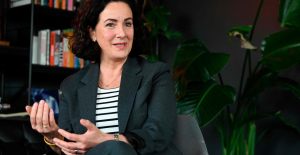 Against drug trafficking, the mayor of Amsterdam advocates the regulation of cocaine
Against drug trafficking, the mayor of Amsterdam advocates the regulation of cocaine Hachette Livre removes Isabelle Saporta from management of Fayard
Hachette Livre removes Isabelle Saporta from management of Fayard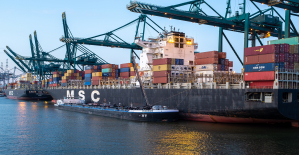 Where is the MSC Aries, the ship boarded by Iran?
Where is the MSC Aries, the ship boarded by Iran?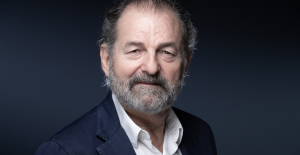 Denis Olivennes at Le Figaro: “CMI France discusses with Natacha Polony the future of Marianne”
Denis Olivennes at Le Figaro: “CMI France discusses with Natacha Polony the future of Marianne” 2024 Candidates Chess Tournament: Relive the Crucial Nepo-Gukesh Game
2024 Candidates Chess Tournament: Relive the Crucial Nepo-Gukesh Game Borgo, by Stéphane Demoustier: locked outside
Borgo, by Stéphane Demoustier: locked outside Release of hostages and immediate ceasefire: at the Venice Biennale, the Israeli pavilion resonates with Gaza
Release of hostages and immediate ceasefire: at the Venice Biennale, the Israeli pavilion resonates with Gaza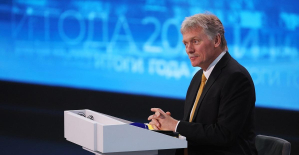 Two Russian artists declared “terrorists and extremists” because of a play
Two Russian artists declared “terrorists and extremists” because of a play Skoda Kodiaq 2024: a 'beast' plug-in hybrid SUV
Skoda Kodiaq 2024: a 'beast' plug-in hybrid SUV Tesla launches a new Model Y with 600 km of autonomy at a "more accessible price"
Tesla launches a new Model Y with 600 km of autonomy at a "more accessible price" The 10 best-selling cars in March 2024 in Spain: sales fall due to Easter
The 10 best-selling cars in March 2024 in Spain: sales fall due to Easter A private jet company buys more than 100 flying cars
A private jet company buys more than 100 flying cars This is how housing prices have changed in Spain in the last decade
This is how housing prices have changed in Spain in the last decade The home mortgage firm drops 10% in January and interest soars to 3.46%
The home mortgage firm drops 10% in January and interest soars to 3.46% The jewel of the Rocío de Nagüeles urbanization: a dream villa in Marbella
The jewel of the Rocío de Nagüeles urbanization: a dream villa in Marbella Rental prices grow by 7.3% in February: where does it go up and where does it go down?
Rental prices grow by 7.3% in February: where does it go up and where does it go down? Europeans: the schedule of debates to follow between now and June 9
Europeans: the schedule of debates to follow between now and June 9 Europeans: “In France, there is a left and there is a right,” assures Bellamy
Europeans: “In France, there is a left and there is a right,” assures Bellamy During the night of the economy, the right points out the budgetary flaws of the macronie
During the night of the economy, the right points out the budgetary flaws of the macronie Europeans: Glucksmann denounces “Emmanuel Macron’s failure” in the face of Bardella’s success
Europeans: Glucksmann denounces “Emmanuel Macron’s failure” in the face of Bardella’s success These French cities that will boycott the World Cup in Qatar
These French cities that will boycott the World Cup in Qatar Bundesliga: Naby Keita suspended by Werder Bremen until the end of the season
Bundesliga: Naby Keita suspended by Werder Bremen until the end of the season Euro 2024: the Blues reveal their opponents for friendlies in June
Euro 2024: the Blues reveal their opponents for friendlies in June Cycling: De Marchi wins the 2nd stage of the Tour of the Alps
Cycling: De Marchi wins the 2nd stage of the Tour of the Alps Paris Olympics 2024: Joris Daudet (BMX) candidate to be French flag bearer
Paris Olympics 2024: Joris Daudet (BMX) candidate to be French flag bearer




